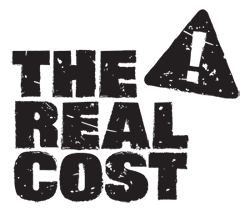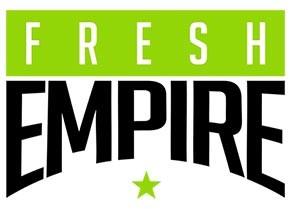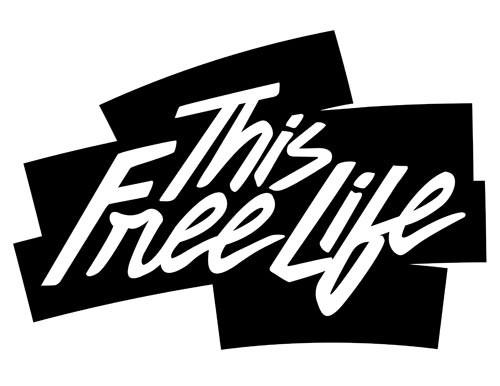
Synar Tobacco Prevention
Synar Amendment: Protecting the Nation’s Youth from Nicotine Addiction
In July 1992, congress enacted the Alcohol, Drug Abuse and Mental Health Administration Reorganization Act (P.L 102-321), which included the Synar Amendment (named for its sponsor, Congressman Mike Synar of Oklahoma)
The goal of the Synar Amendment is to reduce the number of successful illegal tobacco purchases by minors to no more than 20 percent of attempted buys.
The Synar Amendment requires states to:
- Enact and enforce laws (O.C.G.A.16-12-171) prohibiting the sale of tobacco products to individuals under the age of 18
- Enforce laws effectively
- Conduct random, unannounced inspections of tobacco outlets
- Conduct an annual coverage study
OBHP partners with the Georgia Department of Revenue (DOR) Alcohol & Tobacco Division (ATD), and the University of Georgia (UGA) Carl Vinson Institute on Government (CVIOG) to enforce state laws against the sale of tobacco products to minors. This is in compliance with the final regulation implementing section 1926 of the Public Health Service (PHS) Act prohibiting the sale or distribution of tobacco products to minors, and to state law O.C.G.A. 16-12-171 in response to strategies put forth by the U.S. Surgeon General on tobacco access limitation.
The Georgia Department of Revenue, Alcohol and Tobacco Division has sole authority for enforcing the state’s tobacco laws including implementation. They employ youth (15-17) throughout the state to conduct “try buys”. They train the youth to assist with the inspections and prepare reports of findings (County specific data).
The University of Georgia Carl Vinson Institute on Government develops sampling protocols and methodology for the Synar survey. Once completed, they conduct data analysis on the sample. They also provide vendor verification.
DBHDD, OBHP; DOR, ATD; and UGA, CVIOG comprise Georgia’s Synar Tobacco Prevention Team.
The Substance Abuse & Mental Health Services Administration's Center for Substance Abuse Prevention (CSAP) oversees implementation of the Synar Amendment.
Illegal to sell tobacco to minors
Selling cigarettes or tobacco related objects to individuals under the age of 18 years is against the law O.C.G.A. (16-12-171).
See the Department of Revenue website for more information regarding the unlawful sale of alcoholic beverages, tobacco products, or related violations.
Check It Synar Campaign

OBHP launched a statewide “Check-It” education campaign to promote awareness among tobacco retailers particularly and all Georgians in general that selling and purchasing cigarettes or tobacco related objects to individuals under the age of 18 years is against the law O.C.G.A. (16-12-171).
Check-It campaign ad: http://youtu.be/8Oynfwi3ynw
See the Department of Revenue website for more information regarding the unlawful sale of alcoholic beverages, tobacco products, or related violations.
You may contact a Revenue Law Enforcement Officer to report a violation or for more information about the underage alcohol or tobacco laws by calling 1-877-CHECK ID (1-877-243-2543), or via e-mail to: [email protected].
Georgia Synar Reports
FDA Rule Protects Kids from Tobacco
On March 19, 2010, the FDA Center for Tobacco Products publishes a new rule to protect kids from tobacco addiction and premature death from tobacco use.
The new rule became effective June 22, 2010 and prohibits the sale, distribution, and marketing of cigarettes and smokeless tobacco to youth, including:
Sale and Distribution Regulations
- Prohibits the sale of cigarettes or smokeless tobacco to people younger than 18.
- Prohibits the sale of cigarette packages with fewer than 20 cigarettes.
- Prohibits the sale of cigarettes and smokeless tobacco in vending machines, self-service displays, or other impersonal modes of sales, except in very limited situations.
- Restricts free samples of cigarettes or smokeless tobacco products.
Marketing Regulations
- Prohibits tobacco brand name sponsorship of any athletic, musical, or other social or cultural event, or any team or entry in those events.
- Prohibits gifts or other items in exchange for buying cigarettes or smokeless tobacco products.
- Requires that audio ads use only words with no music or sound effects.
- Prohibits the sale or distribution of items, such as hats and tee shirts, with tobacco brands or logos.
FDA Campaigns

The Real Cost Campaign
"What's a pack of smokes cost? Your smooth skin."
"Smoking causes wrinkles that age you prematurely. What are cigarettes costing you?"
So says FDA's first-ever national public education campaign to discourage youth tobacco use. The groundbreaking campaign, "The Real Cost” launched in February 2014 and continues to reach young people open to smoking or already experimenting with cigarettes in more than 200 markets across the country through TV, radio, print, digital, and out-of-home sites such as mall and theme park displays. In April 2016, “The Real Cost” expanded its campaign brand umbrella to include new advertising targeting rural male youth ages 12-17 at risk of smokeless tobacco use. The rural advertising will mainly air in targeted local markets. Edgy, innovative, and featuring the young people it seeks to reach, the campaign talks with youth by focusing on the issues they really care about, like loss of control due to addiction and cosmetic health effects.
For more information about “The Real Cost” campaign, click here

Fresh Empire Campaign
"Setting sights on CEO OF INDEPENDENCE as my goal. So I reject cigarettes to regain control."
"I reject anything, including tobacco, that tries to control me."
Empowering words from FDA's first campaign to discourage multicultural teens—specifically African American, Hispanic, and Asian American/ Pacific Islander youth who identify with hip-hop—from using tobacco. "Fresh Empire" launched in May 2015 and will reach multicultural youth who identify with the hip-hop peer crowd in markets throughout the country through TV, radio, print, the web, social media, and local hip-hop events by the end of 2016. Understanding that tobacco use is often portrayed as a norm amongst the hip-hop peer crowd, the campaign talks with youth using aspirational messaging to convey that tobacco use is not a necessary part of the hip-hop lifestyle.
For more information about the Fresh Empire campaign, click here

This Free Life Campaign
"Joy is on the horizon. Health and happiness—these are our new destinations. But a factor that seems casual to some in the community can get in our way. Like tobacco.”
“This new life—free from judgment, free from the shadows—will also be free from tobacco.”
With these words, FDA presents “This Free Life,” a public education campaign designed to prevent and reduce tobacco use among lesbian, gay, bisexual and transgender (LGBT) young adults ages 18-24 in the United States. LGBT young adults are nearly twice as likely to use tobacco as other young adults. “This Free Life” launched in May 2016 and uses print, digital, social media, outdoor signage and local events to reach the more than 800,000 occasional smokers in the LGBT community to help protect them from tobacco-related disease and prevent the loss of tens of thousands of LGBT lives to tobacco use each year.
The campaign uses authentic and credible messages from tobacco-free members of the LGBT community to challenge the perception that tobacco use is a necessary part of LGBT culture, and to show LGBT young adults they can be the person they want to be and still live tobacco free.
How You Can Help
Spread the word: Share this information through your email distribution lists, newsletters, Websites, and other communication channels.
For more information, visit: http://www.fda.gov/TobaccoProducts/default.htm